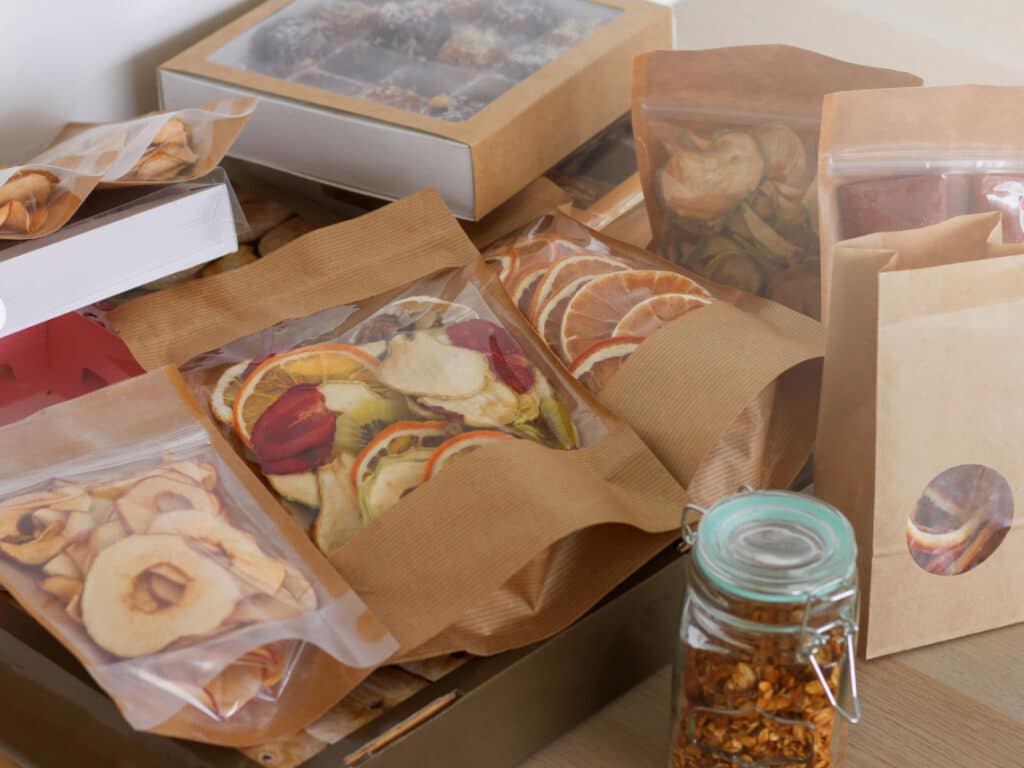In the food and beverage industry, ensuring that your packaging meets all necessary compliance standards isn’t just about staying legal—it’s about protecting consumers, building trust, and maintaining your brand’s integrity. At Pioneer Packaging, we understand the critical role packaging plays in safeguarding food safety, preserving freshness, and providing consumers with accurate information.
As regulations evolve and consumer expectations grow, it’s essential for businesses to stay ahead of compliance standards. This guide outlines what you need to know to keep your packaging safe, compliant, and ready for the market.
Why Compliance Standards Matter
Compliance standards exist to ensure the health and safety of consumers by minimizing the risk of contamination and enabling transparency throughout the food supply chain. From material testing to labeling accuracy, these standards form the foundation of safe food packaging.
Beyond safety, compliance standards also promote international consistency and trust. Whether you’re selling locally or exporting globally, following recognized standards helps your products enter new markets without delays or legal setbacks. Traceability—a major component of these standards—also allows for rapid response in case of recalls, minimizing potential harm and reputational damage.
Key Regulatory Bodies Setting Compliance Standards
To meet global and national packaging requirements, businesses must understand the regulators behind them. The main authorities include:
- U.S. Food and Drug Administration (FDA): Oversees food contact substances and labeling in the U.S.
- European Food Safety Authority (EFSA): Regulates packaging safety across the EU.
- Codex Alimentarius Commission: Develops international food standards recognized by the World Health Organization.
- Safe Quality Food (SQF) Packaging Food Safety Code: Offers guidance for food packaging manufacturers certified under GFSI (Global Food Safety Initiative) standards.
Adhering to the compliance standards established by these organizations ensures your packaging is both safe and globally competitive.
Essential Components of Packaging Compliance
1. Material Testing and Safety
Packaging materials must be tested to confirm they do not leach harmful chemicals into food. This includes ensuring all inks, adhesives, and coatings are food-safe. Recent scrutiny over PFAS (per- and polyfluoroalkyl substances) in containers has led to increased regulation of these “forever chemicals” due to their potential health risks. Expect tighter compliance standards related to chemical composition moving forward.
2. Accurate and Transparent Labeling
Your packaging must clearly state:
- Country of origin
- Expiration or best-by dates
- Allergen declarations
- Ingredient lists
Labeling isn’t just about compliance—it’s about consumer trust. Regulations are also shifting to support healthier food systems. For example, the FDA’s updated definition of “healthy” impacts how you can promote nutritional claims on your packaging.
3. Traceability and Recall Readiness
Modern compliance standards demand that food packaging support traceability throughout the supply chain. QR codes, batch numbers, and digital tracking systems can be used to trace ingredients and packaging components, helping facilitate fast, targeted recalls if needed.
Recent Updates Impacting Food & Beverage Packaging
The regulatory landscape is evolving, with new updates business owners need to be aware of:
- Updated FDA ‘Healthy’ Definition: Labels must meet stricter criteria for sodium, sugar, and fat content to use the “healthy” claim.
- Extended Producer Responsibility (EPR) Laws: These emerging regulations hold producers responsible for the entire lifecycle of packaging, pushing businesses to prioritize recyclability and minimize environmental impact.
- Focus on PFAS: Several states and countries are phasing out PFAS in food packaging. Businesses should proactively seek PFAS-free alternatives to meet new compliance standards.
Sustainability is also an increasing focus. Packaging must not only be safe but also environmentally responsible, especially for companies subject to both food safety and environmental legislation.
Tips to Ensure Your Packaging Is Compliant
- Consult Regulatory Experts: Work with packaging professionals who understand both domestic and international compliance standards.
- Conduct Material Audits: Regularly test packaging components for chemical safety and compatibility with food products.
- Stay Current on Label Laws: Ensure your product labels meet the latest guidelines for nutrition, allergens, and traceability.
- Upgrade Tracking Systems: Implement technology that supports end-to-end traceability to meet recall and regulatory demands.
- Explore Sustainable Options: Proactively transition to recyclable, compostable, or reusable packaging to meet both compliance and consumer demand.
At Pioneer Packaging, we specialize in creating custom packaging solutions that meet rigorous compliance standards while supporting your brand’s sustainability and safety goals. Whether you’re a start-up entering the food market or an established brand expanding globally, we’re here to help ensure your packaging checks every box.
Need support navigating 2025’s food and beverage packaging regulations? Let’s connect.
Pioneer Packaging: Your Custom Packaging Solution Company
For over 35 years, Pioneer Packaging has been your company’s go-to for designing product packaging that sells and performs.
So whether you’re looking to get your paper product packaging at affordable prices or attract new consumers, we’ll find the best packaging solutions that fit your needs. We strive to keep costs down as much as possible to help our customers keep their brands moving along production lines.
Contact Pioneer Packaging today and learn why we’re a leader in B2B packaging solutions.
